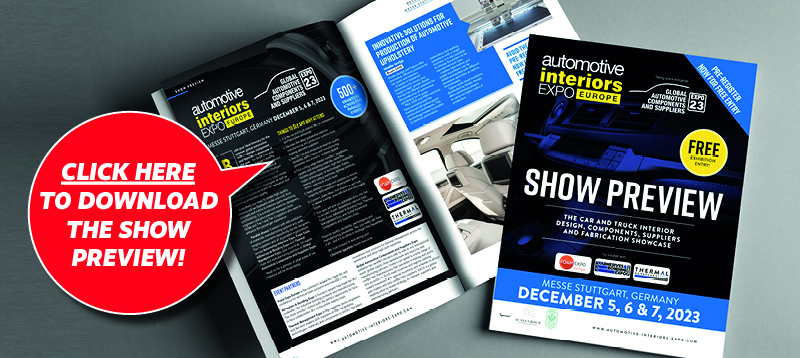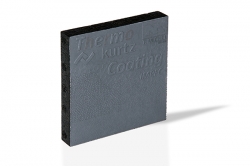Products on Show

New particle foam with thermo coating
Kaneka, T. Michel Formenbau and Kurtz Ersa
 For some plastic-injected applications, foamed parts can be an alternative solution. Particularly in the automotive industry, where lightweight construction plays an increasingly important role, expanded polypropylene (EPP) can be the best solution. EPP has high energy absorption properties, very good thermal insulation values and can be fully recycled. Molded in complex 3D shapes with sizes ranging from a few centimeters to meters, the EPP parts can be low density for shock absorption and soft touch, or very stiff and hard as wood. With a density that is 3 to 45 times less than virgin polypropylene, EPP foam is a sustainable material saver.
For some plastic-injected applications, foamed parts can be an alternative solution. Particularly in the automotive industry, where lightweight construction plays an increasingly important role, expanded polypropylene (EPP) can be the best solution. EPP has high energy absorption properties, very good thermal insulation values and can be fully recycled. Molded in complex 3D shapes with sizes ranging from a few centimeters to meters, the EPP parts can be low density for shock absorption and soft touch, or very stiff and hard as wood. With a density that is 3 to 45 times less than virgin polypropylene, EPP foam is a sustainable material saver.
With the new thermo coating (IMPFC – In-Mold Particle Foam Coating) technology, partners T. Michel Formenbau, Kaneka and Kurtz combine the advantages of EPP and an attractive surface with any texture and any color possible, like a plastic-injected part.
Molded parts made from EPP are up to 60% lighter than injection-molded parts. The process is based on technology in which the molds are heated and kept at temperature with a closed cooling system. As a result, the Kurtz Thermo Foamer shape molding machine is much more energy efficient, with up to 80% less steam consumption.
Molded parts no longer need to be hidden because they now have smooth surfaces. The thermo coating (IMPFC) process can produce closed, smooth, textured and thus injection-molding-like surfaces for particle foam components. Example applications are A-pillar claddings, side door panels and instrument panels. In other words: a wide variety of applications in the interior of an automobile.
Booth A4010
